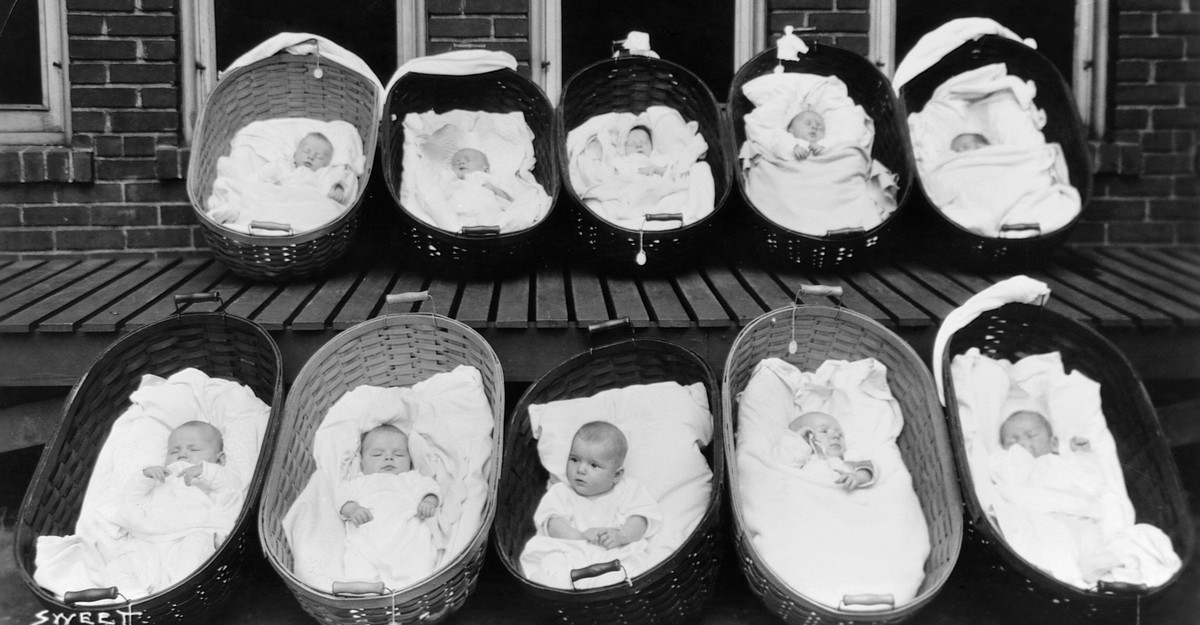- 6 Posts
- 6 Comments
 1·3 years ago
1·3 years agoThanks. It seems to have the same big-picture effect as congestion fees, though it may be easier to administer and more egalitarian (at the expense of flexibility).
 2·3 years ago
2·3 years agoso I comment with ancap-leaning assumptions.
Ok. I’m not sure where to go with that, society would be radically different which makes it difficult to discuss any specifics. But I still think this would be an issue – but maybe the issue would be neighborhoods forming HOAs to buy up local roads or something (if they didn’t already belong to HOAs). Or maybe the issue would be how we assess damages for pollution/noise/hazards caused by cars… I assume that would be different depending on whether we considered cars the default way of getting around vs. a luxury.
well idk I had in mind a quick vehicle for emergencies, independence from bus or train times or things out of your control, etc. Frequently these things “other people” are running are unreliable so then people give up on them. And versus a lower tech option (walking, bikes, scooters, etc.), cars can shield from storms or snow a bit.
Cars are useful, but the question is whether they are worth the cost when the user has to pay all of the costs.
I’m not proposing any sort of car ban or rationing law. I just think that we shouldn’t be using them for every little thing and we shouldn’t build our infrastructure around the assumption that cars are the way to get around. Imagine a situation where there is (typically) one car per household rather than one car per driver. When I was young and single, I lived in a mid-sized city and didn’t feel any need to own a car because I could walk/bike wherever I needed to go (granted, I was near parents and could borrow a car in a pinch, but there are also car-sharing organizations that can provide cars for occasional use).
it seems possible. either devs can factor in building their own parking without it being required, or if there’s enough demand some spot could be created as private parking lot, or shuttles could take people to destination.
My point is that insufficient parking has a negative impact on the usability of roads. If the road manager can’t assuring that there is enough parking, then the road manager needs to find a way to keep vehicles off the roads in the first place.
But the car drivers probably think they’re plenty livable already. So, perhaps I might ask for more precise definition of goal or what livability means.
By ‘livability’ I mean favoring the interests of the city residents, and that cities are able to increase housing supply as population increases. The current layout of cities (or the city center) is often built to favor the interests of people who don’t live in the cities (e.g. suburban commuters and absentee property owners).
I don’t think that drivers find cities ‘livable’ – I constantly hear drivers complaining about driving.
- Gas is too expensive
- Traffic is too heavy
- Parking is too hard to find
- We can’t allow more housing to be built because it would create more traffic.
That’s not to mention that half the reason people move out to the suburbs is to escape the noise/dirt and hazard that cars create in urban neighoborhoods (motor vehicle fatalities are usually the leading cause of death among people <20, though gun fatalities were more common in 2020).
Our reliance on cars is holding us back because people are unwilling to change their assumptions. We’re in a horrible prisoner’s dillemma where we just keep doubling down on the activities that make everyone else worse off.
Some publications:
 0·3 years ago
0·3 years agoprivate cities could…
Transit is inherently a public matter managed by the government. Massive expressways are just as much ‘big government’ as public transit. There are no constitutional or principled reasons to make cars/trucks the preferred transportation option. However, these changes would require support from state, county, and city governments (depending on the political structure for the metropolitian area)
I’m kind of anti-car so maybe we could talk out some solutions. but they also have a lot of benefits and the cons (as mentioned in the post) haven’t been seen as outweighing the benefits for a lot of people.
The apparent benefits are in part due to subsidies and other externalization of costs. Ideally we could address those externalities individually, but as long as cars are considered the default mode of transit (for the middle class), there will be continued political support for these externalizations of cost. Furthermore, much of the externalization is directly due to infrastructure. For instance, many zoning laws require developers to add parking spaces to their projects – it is not possible to eliminate those requirements without simultaneously making other changes to reduce overall traffic; otherwise, you end up with more cars than parking spaces, resulting in cars driving around the city looking for parking spots and creating even more traffic.
maybe getting rid of zoning would allow more housing and shops and things to be built next to each other?
High density housing is often opposed on the grounds that it would produce too much car traffic. Even if the local community supports it, it often doesn’t work well if through-traffic makes the area unpleasant and inconvenient for pedestrians.
idk has anyone hashed out a decent “urban planning” guide? also keeping in mind remote workers so the city may be less needed for collaboration?
There’s definitely been a lot of work on this. I don’t know the publications off the top of my head though. I’ll post them here if I find some good ones – please do the same. Some of these proposals have been implemented in places like Berkeley (side roads closed to through-traffic) – other communities have achieved the same effect by making tons of dead-end road sections, but this also blocks pedestrians and bikes from passing through, so it’s a pretty dysfunctional (and elitist) way of controlling car traffic.
because ironically if the OP anti-car points are for environmental reasons, cities themselves are kind of anti-environment. so maybe getting rid of cities is the outside the box solution to cars being bad in cities?
This is about the livability of cities (or high-density areas), but one benefit of high-density areas is lower environmental impact. For a given population size, high-density city centers are much less environmentally damaging than suburban sprawl (the current alternative). I can imagine some layouts that may be better (e.g. high-density urban nodes [small towns] surrounding interstate exit points or train stations), but any environmental conservation program needs to find a way to minimize high-energy transit (e.g. cars) and minimize gratuitous conversion of land to pavement/lawns.
 1·3 years ago
1·3 years agoThe arguments for men dominating top leagues is irrelevant for non-professional sport leagues such as local competitions, where sport is aimed at fun and social interaction, which should not needlessly encourage sex segregation.
Another possible compromise for ‘classed’ sports (weight, age, etc) is to adjust the cutoff criteria for women to even out the matches. The ‘top’ class may still be dominated by men, but I don’t see that as an issue (any more than the fact that heavyweight wrestling in high-school is dominated by big guys)

 1·3 years ago
1·3 years agoDo you think Mao adhered to the system described in that paragraph?
Based on that essay, it’s not clear how the dictatorship identifies ‘the enemy’ – "the social forces and groups which resist the socialist revolution and are hostile to or sabotage socialist construction are all enemies of the people. "
As long as some of ‘the people’ are at risk of being designated ‘the enemy’ without clear criteia, there cannot be democracy.




Exactly. I’m pushing back at people who derail conversations with their performative pedantry. They aren’t helping anything – they aren’t promoting social justice. They’re just preventing meaningful conversations and making it harder for society to function. I chose this topic because it’s one of the older and widespread ‘woke’ objections and I’ve encountered it in many contexts (not just online).
More generally, there is left-wing/globalist attitude that having a perspective is illegitimate (speaking about the experience of people in a specific location and time and culture). As if real objectivity were possible. I’m saying this as a left-wing globalist.